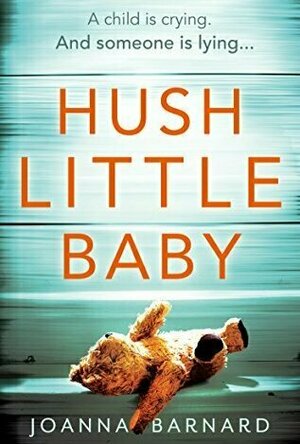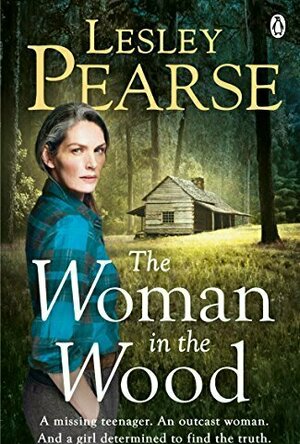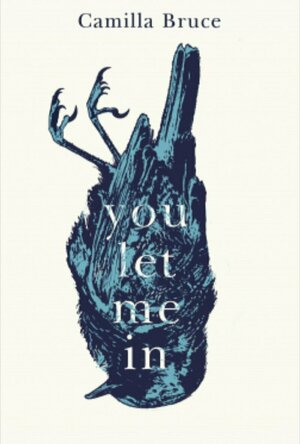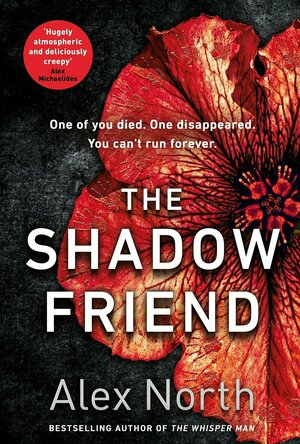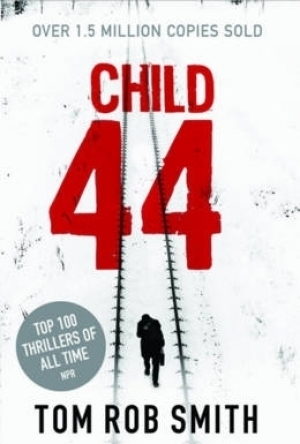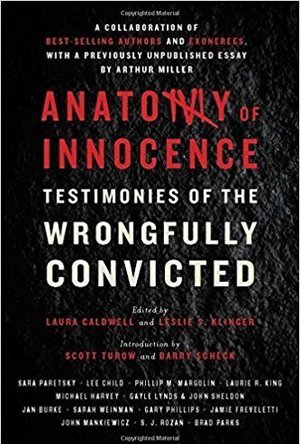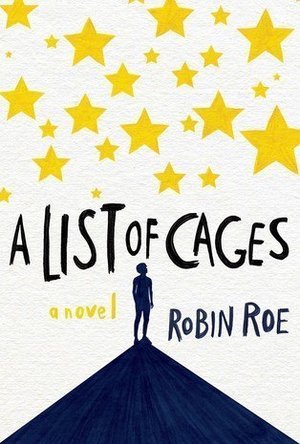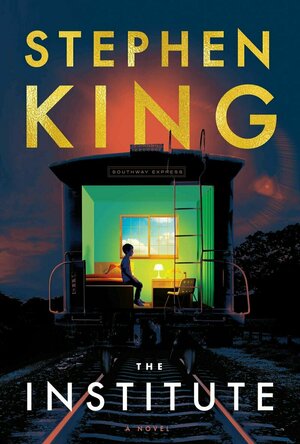Search
BookInspector (124 KP) rated Hush Little Baby in Books
Sep 24, 2020
More reviews can be found on https://bbookinspector.wordpress.com
This is one of those books which left me confused, whether I liked it or not. I read the name of this book and the blurb, and was ready for some great mystery, maybe some horror; unfortunately, I did not get any of it… What I got, was incredibly strong and interesting characters.
The narrative of this book was told by Sally, Richard and Martha. They are a family; Richard married Sally after having an affair with her, and they took in Martha - Richard’s daughter from first marriage. After night out, Sally is woken up by her husband and whimpering ten month old Oliver, who’s hand has been broken. And that’s where this family’s drama begins. Oliver is taken away by social services and this family has to prove that they didn’t (or did?) break his arm. As the pages are turned, the book unfolds some unexpected discoveries, which changes the events in this book.
I think that the base of this book, which kept me going, was the characters. Their thoughts, which were expressed in this book, are so intriguing and too realistic. I loved the way Sally was telling her story as mistress, and how she seduced Richard. I really enjoyed Richard’s perspective in this book. He is very straight forward man, and I enjoyed reading his amusing thoughts in this book. Martha is a teenage spirit in this novel, sharing her story as a child, who is trying to adjust in her new family, and what difficulties she is facing. Even though, Oliver shows up very rarely in this book, the whole story mainly spins around Oliver and all the motherly/ fatherly love for him. Sally and Richard describe how their lives were going on before Oliver was born, and what happened to their relationship after the birth.
I wasn’t very impressed with narrative of this book, I think it kind of plodded along with few twists, and the main reason I kept reading was, the wish to find out who actually broke Oliver’s arm. Joanna Barnard discussed some serious topics in this novel, such as: what parents have to go through, when they are accused of child abuse; reasons for eating disorders and self harm; relationship problems.
The writing style of this book was very addictive, the pages just turn themselves, and I finished this book quite quickly. I think that was influenced by short chapters, easy language, and very absorbing characters. There is plenty of motherly love in this book, which made me roll my eyes, as I am not very big fan when it gets repeated over and over again. The ending of this book rounded up the story nicely, giving well deserved conclusion to this book. So to conclude, it is a family drama with very strong, diverse and realistic characters, filled with parental love and difficult relationships. If you are into these kinds of things, give this book a try and I hope you will enjoy.
Was given this book by publisher and NetGalley for honest review.
This is one of those books which left me confused, whether I liked it or not. I read the name of this book and the blurb, and was ready for some great mystery, maybe some horror; unfortunately, I did not get any of it… What I got, was incredibly strong and interesting characters.
The narrative of this book was told by Sally, Richard and Martha. They are a family; Richard married Sally after having an affair with her, and they took in Martha - Richard’s daughter from first marriage. After night out, Sally is woken up by her husband and whimpering ten month old Oliver, who’s hand has been broken. And that’s where this family’s drama begins. Oliver is taken away by social services and this family has to prove that they didn’t (or did?) break his arm. As the pages are turned, the book unfolds some unexpected discoveries, which changes the events in this book.
I think that the base of this book, which kept me going, was the characters. Their thoughts, which were expressed in this book, are so intriguing and too realistic. I loved the way Sally was telling her story as mistress, and how she seduced Richard. I really enjoyed Richard’s perspective in this book. He is very straight forward man, and I enjoyed reading his amusing thoughts in this book. Martha is a teenage spirit in this novel, sharing her story as a child, who is trying to adjust in her new family, and what difficulties she is facing. Even though, Oliver shows up very rarely in this book, the whole story mainly spins around Oliver and all the motherly/ fatherly love for him. Sally and Richard describe how their lives were going on before Oliver was born, and what happened to their relationship after the birth.
I wasn’t very impressed with narrative of this book, I think it kind of plodded along with few twists, and the main reason I kept reading was, the wish to find out who actually broke Oliver’s arm. Joanna Barnard discussed some serious topics in this novel, such as: what parents have to go through, when they are accused of child abuse; reasons for eating disorders and self harm; relationship problems.
The writing style of this book was very addictive, the pages just turn themselves, and I finished this book quite quickly. I think that was influenced by short chapters, easy language, and very absorbing characters. There is plenty of motherly love in this book, which made me roll my eyes, as I am not very big fan when it gets repeated over and over again. The ending of this book rounded up the story nicely, giving well deserved conclusion to this book. So to conclude, it is a family drama with very strong, diverse and realistic characters, filled with parental love and difficult relationships. If you are into these kinds of things, give this book a try and I hope you will enjoy.
Was given this book by publisher and NetGalley for honest review.
BookInspector (124 KP) rated The Woman in the Wood in Books
Sep 24, 2020
I would like to begin by saying, that this is my first book by this author, and it really surprised me. It felt like I was reading a literary classics and I really hope it will become one day.
The main characters of this book are twins Maisy and Duncan, and author really puts a lot of effort in introducing them. Generally, all the characters in this book were very well introduced and rounded. Their personalities were shining in this book, and there were so many to choose from. Lesley Pearse kept really pleasant balance between cold and warm characters, giving a taste of both and keeping the diversity going. I really liked the way author chose different ages for the characters, so everyone, from young to old will find someone to relate to. I do love books where characters have a voice, and this book didn’t disappoint me with that, but the transition between different perspectives was sometimes difficult to follow for me, as it just starts from new paragraph. That’s why, for me, this book required some concentration and suitable atmosphere to read it.
The plot of this book starts in 1960 in West London but quite quickly it is transferred to Nightingales mansion in Burley. Well, it was way before I was born and there are so many clues of the 60ies, but during whole book I had the feeling of early nineteenth century. It was because of the elegant and refined writing style used in this book, everything in this book screamed of politeness and rich mannerism, that’s why it felt like reading one of the classic books.
The story of this novel was flowing very smoothly, without any story changing twists or turns. There were some really interesting discoveries along the way, which made the book interesting, but it was not very fast paced for me. L. Pearse was discussing really interesting topics in this book, such as: children growing up with lack of parental love; the strong bond between siblings (in this case twins); how paedophilia and child abuse affects young kids mentally and physically; why people choose to live away from society; and I believe some of them were taken from author’s own colourful life.
As I mentioned before, the writing style of this book is very refined and sophisticated, and for me it is not easy to read such work, but very refreshing at the same time. The chapters of this book are not very short, but it changes between different characters perspectives, so they are not boring. I would like to throw in a disclaimer, there are some nasty things discussed in this book, so if you have an eager sensitive child who would like to read this novel, it could be a little distressing. The ending of this book wasn’t very exciting, but it was well deserved and rounded the story fully, leaving me satisfied with the outcome of this story. So to conclude, I enjoyed reading this rich novel, filled with unexpected writing style, well rounded, interesting characters, and it discusses very wide range of life aspects. Get it, read it, enjoy it!
Was given this book by publisher and NetGalley for honest review.
The main characters of this book are twins Maisy and Duncan, and author really puts a lot of effort in introducing them. Generally, all the characters in this book were very well introduced and rounded. Their personalities were shining in this book, and there were so many to choose from. Lesley Pearse kept really pleasant balance between cold and warm characters, giving a taste of both and keeping the diversity going. I really liked the way author chose different ages for the characters, so everyone, from young to old will find someone to relate to. I do love books where characters have a voice, and this book didn’t disappoint me with that, but the transition between different perspectives was sometimes difficult to follow for me, as it just starts from new paragraph. That’s why, for me, this book required some concentration and suitable atmosphere to read it.
The plot of this book starts in 1960 in West London but quite quickly it is transferred to Nightingales mansion in Burley. Well, it was way before I was born and there are so many clues of the 60ies, but during whole book I had the feeling of early nineteenth century. It was because of the elegant and refined writing style used in this book, everything in this book screamed of politeness and rich mannerism, that’s why it felt like reading one of the classic books.
The story of this novel was flowing very smoothly, without any story changing twists or turns. There were some really interesting discoveries along the way, which made the book interesting, but it was not very fast paced for me. L. Pearse was discussing really interesting topics in this book, such as: children growing up with lack of parental love; the strong bond between siblings (in this case twins); how paedophilia and child abuse affects young kids mentally and physically; why people choose to live away from society; and I believe some of them were taken from author’s own colourful life.
As I mentioned before, the writing style of this book is very refined and sophisticated, and for me it is not easy to read such work, but very refreshing at the same time. The chapters of this book are not very short, but it changes between different characters perspectives, so they are not boring. I would like to throw in a disclaimer, there are some nasty things discussed in this book, so if you have an eager sensitive child who would like to read this novel, it could be a little distressing. The ending of this book wasn’t very exciting, but it was well deserved and rounded the story fully, leaving me satisfied with the outcome of this story. So to conclude, I enjoyed reading this rich novel, filled with unexpected writing style, well rounded, interesting characters, and it discusses very wide range of life aspects. Get it, read it, enjoy it!
Was given this book by publisher and NetGalley for honest review.
KatieLouCreate (162 KP) rated The Lovely Bones in Books
Jan 22, 2018
It was a while ago when I read this book, but I remember enough to write a review, I think.
Firstly, the book is not for the faint-hearted. The beginning is difficult to read for those who are a little sensitive to subjects such as child abuse, rape, and murder. That all happens near the beginning of the book.
The middle of the book it so much better. The reader and the protagonist, Susie Salmon, watch as her family grieve for the loss of their daughter. They do not know what happened to her. To them, she is just missing, most likely murdered. It is only us and Susie who knows what happened. We see Susie as she tries to interact with her family and help them to move on from what has happened to them. It is such a lovely section of the story it makes me want to rate it higher.
However, the ending ruined what the author had spent so much time building. The ending does the rest of the book no justice what so ever. Although to some, the story would feel unrealistic anyway, considering we are watching from the focalisation of a dead person. But it is still believable because of the purpose of the book. The ending completely pulls you from this beautifully written piece. When I was reading it I was like what? Really? This is happening? It was so unrealistic that it ruined the ending. It was like lazy writing. The author could not think of a better ending so she just threw one together and hoped no one would notice. I noticed. And if that isn't what she did, then she ruined a great piece of work.
The family also seemed a little too perfect for me. But I will leave that as it stands.
I'm going to stop ranting now. I have given this book a 6 because I loved the rest of the book up until the ending. If the ending was better, it would have gotten a higher rating. But alas, the book was an alright read. Something I would not really read again unless I had to. And I don't.
Firstly, the book is not for the faint-hearted. The beginning is difficult to read for those who are a little sensitive to subjects such as child abuse, rape, and murder. That all happens near the beginning of the book.
The middle of the book it so much better. The reader and the protagonist, Susie Salmon, watch as her family grieve for the loss of their daughter. They do not know what happened to her. To them, she is just missing, most likely murdered. It is only us and Susie who knows what happened. We see Susie as she tries to interact with her family and help them to move on from what has happened to them. It is such a lovely section of the story it makes me want to rate it higher.
However, the ending ruined what the author had spent so much time building. The ending does the rest of the book no justice what so ever. Although to some, the story would feel unrealistic anyway, considering we are watching from the focalisation of a dead person. But it is still believable because of the purpose of the book. The ending completely pulls you from this beautifully written piece. When I was reading it I was like what? Really? This is happening? It was so unrealistic that it ruined the ending. It was like lazy writing. The author could not think of a better ending so she just threw one together and hoped no one would notice. I noticed. And if that isn't what she did, then she ruined a great piece of work.
The family also seemed a little too perfect for me. But I will leave that as it stands.
I'm going to stop ranting now. I have given this book a 6 because I loved the rest of the book up until the ending. If the ending was better, it would have gotten a higher rating. But alas, the book was an alright read. Something I would not really read again unless I had to. And I don't.
ClareR (6062 KP) rated You Let Me In in Books
Mar 10, 2020
A satisfyingly dark read!
You Let Me In is unlike anything I’ve read before. I signed up to read this on The Pigeonhole based purely on the cover. I didn’t read anything about it, in fact I thought it was going to be a thriller. The cover though: I actually thought it was a hand showing someone then bird’, and I was half right. It’s a dead bird, and the main character, Cassandra Tipp, does seem to spend most of her life metaphorically giving everyone ‘the bird’ (ie. telling them to leave her alone).
There is a mystery at the start of this. Cassandra Tipp has disappeared, and her niece and nephew have been told that after a year they can have her worldly goods if they go to her house, find the manuscript she has left them and deduce a code word.
This book is that story.
It transpires that Cassie has been involved in the death of three people: her husband Tommy Tipp, her father and her brother. But how did she get away with it? Or more importantly: who did it if she didn’t? And who is Pepper Man?
Ok, I don’t want to give too much away, but fairies are involved from the beginning, and they’re unlike the fairies I’ve read about in the past. They come with a fascinating origin story, and I’d be interested to know if they were a construct of the authors imagination, or whether they’re a Norwegian version of the fairies I’ve learnt about with my Anglo-Irish background. Either way, they’re great characters.
There’s also a chance that child abuse is involved, either by humans or fairies, it all depends on what you read in to things that happen, whether or not you believe that Cassie is in fact sane. Some of the violence is pretty graphic too, and did put some Pigeonhole readers off.
It’s a puzzling book, a book where you’re never sure whether the narrator is reliable. And I loved it. So, if you like quirky, puzzling, violent(ish), dark books, with fairies (or perhaps not) and potentially with characters with mental health issues, then you’ll enjoy this book as much as I did. It was a satisfying, startling ten days with The Pigeonhole!
There is a mystery at the start of this. Cassandra Tipp has disappeared, and her niece and nephew have been told that after a year they can have her worldly goods if they go to her house, find the manuscript she has left them and deduce a code word.
This book is that story.
It transpires that Cassie has been involved in the death of three people: her husband Tommy Tipp, her father and her brother. But how did she get away with it? Or more importantly: who did it if she didn’t? And who is Pepper Man?
Ok, I don’t want to give too much away, but fairies are involved from the beginning, and they’re unlike the fairies I’ve read about in the past. They come with a fascinating origin story, and I’d be interested to know if they were a construct of the authors imagination, or whether they’re a Norwegian version of the fairies I’ve learnt about with my Anglo-Irish background. Either way, they’re great characters.
There’s also a chance that child abuse is involved, either by humans or fairies, it all depends on what you read in to things that happen, whether or not you believe that Cassie is in fact sane. Some of the violence is pretty graphic too, and did put some Pigeonhole readers off.
It’s a puzzling book, a book where you’re never sure whether the narrator is reliable. And I loved it. So, if you like quirky, puzzling, violent(ish), dark books, with fairies (or perhaps not) and potentially with characters with mental health issues, then you’ll enjoy this book as much as I did. It was a satisfying, startling ten days with The Pigeonhole!
BookInspector (124 KP) rated The Shadow Friend in Books
Jan 26, 2021
The protagonist of this story is Paul. He has to come back to a miserable town where he grew up after he found out that his mother is about to die. Paul hates that town for so many reasons, but mainly because of what happened when he was young. This book is told from a dual perspective. Another character sharing details is Amanda, she is a detective, investigating a murder, that looks exactly like the one that happened many many years ago. Amanda has her own issues, and she is kind of a background character in this book. I liked Paul as a character, he was a good kid, he is awkward, but a nice guy. All the characters chosen in this novel are quite mysterious, and the whole book has a very depressing and gloomy atmosphere, that works very well in Alex North’s books.
The narrative of this novel is exceptionally well written. The author used a dual timeline, we have the events happening now, and the events that happened when Paul was young. My favourite was the ones from the past, of course. It absolutely absorbed me, I was so eager to find out what happened all those years ago. The parts from the present were quieter and more self-reflecting, sharing the inner struggles, but creepy nevertheless. This book is very twisty, and some of the turns really left me gobsmacked and surprised. The topics discussed in this novel were lucid dreaming, bullying, wish to belong, abusive parents, mental abuse, dementia and its effects, parent-child relationships, the influence of the internet and many, many more.
I really love Alex North’s writing style. He is amazing in creating suspense, and all the mind manipulation of the reader was truly amazing. 🙂 The chapters are quite short, I was engrossed in this novel, so the pages just flew by, for me. The ending was shocking and very unexpected, but I did like the way this novel ended. I hope someone will adopt this novel to a film, I am pretty sure it would be wickedly good. 🙂
So, to conclude, I really liked this horror psychological thriller. The characters are very mysterious and the plot is absorbing, layered and complex. This book left me emotionally shaken in the best possible way, and I really recommend to those, who would like something creepy.
The narrative of this novel is exceptionally well written. The author used a dual timeline, we have the events happening now, and the events that happened when Paul was young. My favourite was the ones from the past, of course. It absolutely absorbed me, I was so eager to find out what happened all those years ago. The parts from the present were quieter and more self-reflecting, sharing the inner struggles, but creepy nevertheless. This book is very twisty, and some of the turns really left me gobsmacked and surprised. The topics discussed in this novel were lucid dreaming, bullying, wish to belong, abusive parents, mental abuse, dementia and its effects, parent-child relationships, the influence of the internet and many, many more.
I really love Alex North’s writing style. He is amazing in creating suspense, and all the mind manipulation of the reader was truly amazing. 🙂 The chapters are quite short, I was engrossed in this novel, so the pages just flew by, for me. The ending was shocking and very unexpected, but I did like the way this novel ended. I hope someone will adopt this novel to a film, I am pretty sure it would be wickedly good. 🙂
So, to conclude, I really liked this horror psychological thriller. The characters are very mysterious and the plot is absorbing, layered and complex. This book left me emotionally shaken in the best possible way, and I really recommend to those, who would like something creepy.
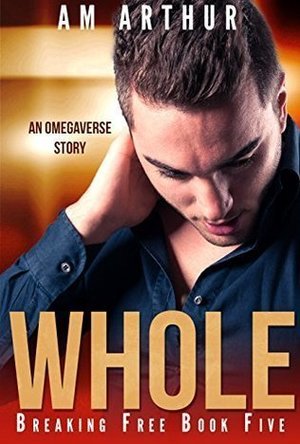
Whole (Breaking Free #5)
Book
Two broken hearts…one perfect fit. Alpha Morris Danvers likes his quiet life as a paralegal...
M_M Mpreg Omegaverse Romance Dark
Asiza Tait (139 KP) rated Child 44 in Books
Feb 1, 2018
We all agreed that it was a very intense book and for those of us who weren’t fully aware of what it was like to live in Stalinist Russia during that time our eyes were surely opened!
This book takes you through the transformation of Leo Demidov from a complete ‘company man’ of the Russian State to a real person listening to his own sense of right and wrong. We meet him as a no nonsense officer of the MGB willing and able to follow through on his orders and completely committed to succeeding. We also get glimpses of his insecurity because no one is safe under the scrutiny of the State. He is very aware of this and the long running jealousy of Vasily is a constant reminder of how much someone hates him and desperately wishes and works towards his downfall. From the beginning the life of Leo is shown for the stark reality it is. There is no happy family man here, or even a happy career man, it is purely survival in a very structured and dangerous place.
The relationship between Leo and his wife Raisa is another that is deep, raw and completely honest. Their relationship ebbs and flows according to the State plan, but the book takes a serious turn when Leo is faced with the decision of denouncing his wife. Seeing into their marriage is like facing a needed surgery, the inevitable pain is necessary to start the way to healing. Raisa is the stronger character in my view, never losing her sense of humanity but knowing how to hide herself in order to survive.
Leo’s decision starts a chain of events that leads to him discovering that murders are occurring the breadth of Russia, and since there is no crime in Russia he is the only one trying to convince anyone of the scary reality that a serial child killer/s is on the loose. His commitment to this brings further scrutiny on him and he feels the full force of the authorities and experiences a complete reversal of circumstances. Where he was the one arresting people and transporting them to the most notorious prison Lubyanka, he is now the one in the prisoners' seat.
There are twists and turns in this book that will knock the breath out of you. A seriously brilliant book.
On a personal note I found this book hit too close to home in regards to my own upbringing in the Jehovah’s Witnesses. Where Leo is hitting his head against a stone wall in trying to convince people of the danger they are ignoring, it reminded me very strongly of how difficult it is to convince or motivate the Governing Body of Jehovah’s Witnesses and the Congregation Elders that the right thing to do when an accusation of child abuse comes to them is to immediately call the authorities. They instead stick to their own procedures in the face of irrefutable evidence and demonstrated experience that their procedures are dead wrong and need to be changed, they still refuse to listen and insist that their way of doing things is right and everyone else must be wrong. They desperately work to keep their image clean just like the Russian Government insists that the State is always right. Thankfully there is an army of people worldwide working incredibly hard to expose there hurtful practices and in so doing protect the public from being sucked into this so called religion.
This book takes you through the transformation of Leo Demidov from a complete ‘company man’ of the Russian State to a real person listening to his own sense of right and wrong. We meet him as a no nonsense officer of the MGB willing and able to follow through on his orders and completely committed to succeeding. We also get glimpses of his insecurity because no one is safe under the scrutiny of the State. He is very aware of this and the long running jealousy of Vasily is a constant reminder of how much someone hates him and desperately wishes and works towards his downfall. From the beginning the life of Leo is shown for the stark reality it is. There is no happy family man here, or even a happy career man, it is purely survival in a very structured and dangerous place.
The relationship between Leo and his wife Raisa is another that is deep, raw and completely honest. Their relationship ebbs and flows according to the State plan, but the book takes a serious turn when Leo is faced with the decision of denouncing his wife. Seeing into their marriage is like facing a needed surgery, the inevitable pain is necessary to start the way to healing. Raisa is the stronger character in my view, never losing her sense of humanity but knowing how to hide herself in order to survive.
Leo’s decision starts a chain of events that leads to him discovering that murders are occurring the breadth of Russia, and since there is no crime in Russia he is the only one trying to convince anyone of the scary reality that a serial child killer/s is on the loose. His commitment to this brings further scrutiny on him and he feels the full force of the authorities and experiences a complete reversal of circumstances. Where he was the one arresting people and transporting them to the most notorious prison Lubyanka, he is now the one in the prisoners' seat.
There are twists and turns in this book that will knock the breath out of you. A seriously brilliant book.
On a personal note I found this book hit too close to home in regards to my own upbringing in the Jehovah’s Witnesses. Where Leo is hitting his head against a stone wall in trying to convince people of the danger they are ignoring, it reminded me very strongly of how difficult it is to convince or motivate the Governing Body of Jehovah’s Witnesses and the Congregation Elders that the right thing to do when an accusation of child abuse comes to them is to immediately call the authorities. They instead stick to their own procedures in the face of irrefutable evidence and demonstrated experience that their procedures are dead wrong and need to be changed, they still refuse to listen and insist that their way of doing things is right and everyone else must be wrong. They desperately work to keep their image clean just like the Russian Government insists that the State is always right. Thankfully there is an army of people worldwide working incredibly hard to expose there hurtful practices and in so doing protect the public from being sucked into this so called religion.
Zuky the BookBum (15 KP) rated Anatomy of Innocence: Testimonies of the Wrongfully Convicted in Books
Mar 15, 2018
With movements like Black Lives Matter at the forefront of society right now, and multiple documentaries about wrongful convictions such as Steven Avery and The West Memphis Three out, there has never been a better time for this book to come out and be read. This topic is <i><b>so important.</i></b>
Reading about the lives of these poor, innocent human beings being treated like theyre dirt, like theyre less than dirt, is devastating. A number of these stories actually brought tears to my eyes. How this injustice goes on, I cant fathom. In many of these stories we hear how there are alibis that prove the person wasnt there to commit the crime, but they convict them anyway. There are confessions from other people to crimes, yet they will convict someone else. There is someone elses DNA on a victim's body but they will commit someone whose DNA is not on the body. And possibly the worst one of them all, there are statements from VICTIMS that the person they have arrested is not the right person, yet they will still convict them. How can a legal system, thats supposed to protect us and who were supposed to trust, let this happen? It makes my blood boil.
In this book, each persons story is written by a prolific crime writer, so all of these accounts are really well written and they really bring out raw emotions in you because theyre so well presented and you can feel the exonerees pain.
Many of these people spent over a decade, if not over <b>two decades</b> of their life trapped in the walls of dirty prisons for crimes they were innocent of, such as murder, child murder, rape and GBH. The brutality of the officers arresting these people makes me sick. <b>Literal</b> torture is used on innocent people, as young as 17, to coax a <b>false confession</b> out of them, all because they want to be able to arrest someone. What makes me sicker is that these officers and the higher powers who turn(ed) a blind eye to this kind of abuse are never charged or made to own up to their brutalities AND because of the idiocy of these *insert the worst possible swear word and insults here* policemen, real child sex offenders and heartless murderers are <b>NEVER CAUGHT.</b>
This book is hopeful, but it is also heart breaking and while I could go on forever talking about the hatred and rage that this book makes me feel, but Im going to end it with this instead.
<b><blockquote>GLORIA KILLIAN
DAVID BATES
RAY TOWLER
MICHAEL EVANS
KEN WYNIEMKO
KIRK BLOODWORTH
AUDREY EDMUNDS
ALTON LOGAN
PETER REILLY
GINNY LEFEVER
BILL DILLON
JEFF DESKOVIC
ANTOINE DAY
JERRY MILLER
JUAN RIVERA</blockquote></b>
<b>You are brave and you are strong. Thank you for sharing your stories with us and shining a light on a subject so often ignored. I hope the world does nothing but right by you from here on in. You, over anyone, deserve it.</b>
I have been inspired. I am now going to look into the UKs own Innocence Group and see what I can do to help those 10% who are wrongly convicted and being left to rot in prison.
<i>Thanks to Netgalley and W. W. Norton & Company for giving me the opportunity to read this book in exchange for an honest review.</i>
Reading about the lives of these poor, innocent human beings being treated like theyre dirt, like theyre less than dirt, is devastating. A number of these stories actually brought tears to my eyes. How this injustice goes on, I cant fathom. In many of these stories we hear how there are alibis that prove the person wasnt there to commit the crime, but they convict them anyway. There are confessions from other people to crimes, yet they will convict someone else. There is someone elses DNA on a victim's body but they will commit someone whose DNA is not on the body. And possibly the worst one of them all, there are statements from VICTIMS that the person they have arrested is not the right person, yet they will still convict them. How can a legal system, thats supposed to protect us and who were supposed to trust, let this happen? It makes my blood boil.
In this book, each persons story is written by a prolific crime writer, so all of these accounts are really well written and they really bring out raw emotions in you because theyre so well presented and you can feel the exonerees pain.
Many of these people spent over a decade, if not over <b>two decades</b> of their life trapped in the walls of dirty prisons for crimes they were innocent of, such as murder, child murder, rape and GBH. The brutality of the officers arresting these people makes me sick. <b>Literal</b> torture is used on innocent people, as young as 17, to coax a <b>false confession</b> out of them, all because they want to be able to arrest someone. What makes me sicker is that these officers and the higher powers who turn(ed) a blind eye to this kind of abuse are never charged or made to own up to their brutalities AND because of the idiocy of these *insert the worst possible swear word and insults here* policemen, real child sex offenders and heartless murderers are <b>NEVER CAUGHT.</b>
This book is hopeful, but it is also heart breaking and while I could go on forever talking about the hatred and rage that this book makes me feel, but Im going to end it with this instead.
<b><blockquote>GLORIA KILLIAN
DAVID BATES
RAY TOWLER
MICHAEL EVANS
KEN WYNIEMKO
KIRK BLOODWORTH
AUDREY EDMUNDS
ALTON LOGAN
PETER REILLY
GINNY LEFEVER
BILL DILLON
JEFF DESKOVIC
ANTOINE DAY
JERRY MILLER
JUAN RIVERA</blockquote></b>
<b>You are brave and you are strong. Thank you for sharing your stories with us and shining a light on a subject so often ignored. I hope the world does nothing but right by you from here on in. You, over anyone, deserve it.</b>
I have been inspired. I am now going to look into the UKs own Innocence Group and see what I can do to help those 10% who are wrongly convicted and being left to rot in prison.
<i>Thanks to Netgalley and W. W. Norton & Company for giving me the opportunity to read this book in exchange for an honest review.</i>
Hazel (1853 KP) rated A List of Cages in Books
Dec 17, 2018
<i>This ARC was provided by the author in exchange for an honest review </i>
Debut novelist Robin Roe is emerging with a bang with soon-to-be-published young adult novel, <i>A List of Cages</i>. Dealing with relatable school experience as well as devastating, painful realities, Roe engages the reader in a gripping, heartbreaking narrative.
Told through the words of two characters, <i>A List of Cages</i> explores contrasting personalities of high school students. On the one hand there is Julian, a quiet, anxious 14-year-old who is often ostracized and ridiculed by the members of his classes. Suffering from dyslexia, Julian does not enjoy school or have any friends to talk to. To make things worse, his parents have died, leaving Julian in the care of irascible Uncle Russell. In contrast, Adam, a senior, is a popular, well-loved student, whose diagnosis of ADHD causes him to be loud and energetic – the opposite of fearful Julian.
Having known Julian before the death of his parents, Adam is quick to notice the change in Julian’s personality and uses his role as aide to the school psychologist to get to know him better. Much to his friends’ unease, Adam begins bringing Julian along to parties, concerts and days out where, despite initially sticking out like a sore thumb, Julian begins to relax and realize that people enjoy having him around. Yet, Adam is still acutely aware that something is not right, and although suspicious of Julian’s uncle, does not do anything until it is almost too late…
For a fairly short story, <i>A List of Cages</i> covers a broad range of themes. Many of these are comparisons that reveal the potential problems students may face during high school. The obvious issue of learning difficulties are highlighted by Adam’s ADHD and Julian’s Dyslexia, as well as the contrasting ways teachers deal with them. There is also the difference in personality that alters the way the characters are received by their peers.
A prominent theme is grief – coming to terms with the sudden deaths of parents; but the most important subject raised is the advantage an ignoble adult may take on a vulnerable child. The abuse inflicted on Julian is demoralizing and painful to read - the understanding that this is a real issue in today’s world, shatteringly upsetting. The ease with which an abuser controls their victim is extremely scary, however the knowledge that there are people around to help and/or rescue the child is uplifting.
<i>A List of Cages</i> has been listed as suitable for readers between the ages of 12 and 18, however I disagree. The distressing storyline will most likely upset the lower end of this scale, especially as at that age they may not be able to fully understand the circumstances described. The occasional use of expletives support my opinion that older readers are the more appropriate audience.
It may take a few chapters to get a feel for the book, however <i>A List of Cages</i> is a highly recommended novel. Many writers over the past decade have brought topics previously taboo to readers’ attentions. Robin Roe continues to create an awareness of such matters through her incisive story. Her writing style will appeal to many well-read teenagers, and it is hoped that she will continue publishing works in this vein.
Debut novelist Robin Roe is emerging with a bang with soon-to-be-published young adult novel, <i>A List of Cages</i>. Dealing with relatable school experience as well as devastating, painful realities, Roe engages the reader in a gripping, heartbreaking narrative.
Told through the words of two characters, <i>A List of Cages</i> explores contrasting personalities of high school students. On the one hand there is Julian, a quiet, anxious 14-year-old who is often ostracized and ridiculed by the members of his classes. Suffering from dyslexia, Julian does not enjoy school or have any friends to talk to. To make things worse, his parents have died, leaving Julian in the care of irascible Uncle Russell. In contrast, Adam, a senior, is a popular, well-loved student, whose diagnosis of ADHD causes him to be loud and energetic – the opposite of fearful Julian.
Having known Julian before the death of his parents, Adam is quick to notice the change in Julian’s personality and uses his role as aide to the school psychologist to get to know him better. Much to his friends’ unease, Adam begins bringing Julian along to parties, concerts and days out where, despite initially sticking out like a sore thumb, Julian begins to relax and realize that people enjoy having him around. Yet, Adam is still acutely aware that something is not right, and although suspicious of Julian’s uncle, does not do anything until it is almost too late…
For a fairly short story, <i>A List of Cages</i> covers a broad range of themes. Many of these are comparisons that reveal the potential problems students may face during high school. The obvious issue of learning difficulties are highlighted by Adam’s ADHD and Julian’s Dyslexia, as well as the contrasting ways teachers deal with them. There is also the difference in personality that alters the way the characters are received by their peers.
A prominent theme is grief – coming to terms with the sudden deaths of parents; but the most important subject raised is the advantage an ignoble adult may take on a vulnerable child. The abuse inflicted on Julian is demoralizing and painful to read - the understanding that this is a real issue in today’s world, shatteringly upsetting. The ease with which an abuser controls their victim is extremely scary, however the knowledge that there are people around to help and/or rescue the child is uplifting.
<i>A List of Cages</i> has been listed as suitable for readers between the ages of 12 and 18, however I disagree. The distressing storyline will most likely upset the lower end of this scale, especially as at that age they may not be able to fully understand the circumstances described. The occasional use of expletives support my opinion that older readers are the more appropriate audience.
It may take a few chapters to get a feel for the book, however <i>A List of Cages</i> is a highly recommended novel. Many writers over the past decade have brought topics previously taboo to readers’ attentions. Robin Roe continues to create an awareness of such matters through her incisive story. Her writing style will appeal to many well-read teenagers, and it is hoped that she will continue publishing works in this vein.
Hadley (567 KP) rated The Institute in Books
Oct 24, 2019
Likable characters (1 more)
Paranormal
Sexualizing children (1 more)
Not a regular King story
At around 95 novels, Stephen King, who is one of the most well-known authors of our time, debuts a possible new novel series about psychic children. 'The Institute' mostly takes place in a hidden facility located in a wooded area of Maine,where readers follow a kidnapped child prodigy named Luke Ellis, and the government experiments that are inflicted on him to heighten his psychic powers.
So why is the government kidnapping children to conduct psychic research on them? At first, it may seem just that: psychic research, because psychic powers seem to be more powerful in young children than adults, but nothing is what it seems. As the boss of this Institute says to the children: " ' There's a war going on, and you have been called upon to serve your country.' " A few sentences later, and she explains it a little more in depth for Ellis: " ' This is not an arms race but a mind race, and if we lose, the consequences would be more than dire; they would be unimaginable. You may only be twelve, but you are a soldier in an undeclared war. The same is true of Kalisha and the others. Do you like it? Of course not. Draftees never do, and draftees sometimes need to be taught that there are consequences for not following orders. I believe you've already had one lesson in that regard. If you're as bright as your records say you are, perhaps you won't need another. If you do, however, you'll get it. This is not your home. This is not your school. You will not simply be given an extra chore or sent to the principal's office or given detention; you will be punished. Clear? ' "
King writes in a third-person point-of-view, which makes it a little disturbing that when any female character he introduces (including girls as young as 11-years-old) are usually introduced by their breast size. It's not uncommon for male writers to introduce female characters this way, but when most of them are children, it can be very off putting for readers. One scene, King makes Ellis notice that Kalisha has 'her hands on her mostly nonexistent hips,' then writes about the character Helen in the same scene: " Another door opened and Helen Simms appeared, clad - - - sort of - - - in what Luke believed were called babydoll pajamas. She had hips, plus other interesting equipment. " Both of these characters are only twelve-years-old.
Aside from the children, King also introduces an important character named Tim Jamieson. This character starts the novel off before readers meet Ellis; we learn that he is a former cop who is traveling to New York while taking odd jobs on his way there, including a night knocker job in DuPray, South Carolina (which becomes very important later on in the story) .
Avery, my personal favorite character in the book, is a ten-year-old who acts like a five-year-old, " The screamer was a little boy in Star Wars pajamas, hammering on doors with small fists that went up and down like pistons. Ten? Avery Dixon looked six, seven at most. The crotch and one leg of his pajama pants were wet and sticking to him. " Dixon and Kalisha are both in the Institute for telepathy. " 'You know so,' Kalisha said, and began to stroke the little boy's [Dixon] hair again. Like had a sense - - - maybe bullshit, maybe not - - - that a lot was going on between them. Inside traffic. " And quickly, the group of children become protective of Dixon, " 'But you need to take care of this one for as long as you can. When I think of Tony or Zeke or that bitch Winona hitting Avery, it makes me want to cry. ' " Kalisha confides in Ellis.
Kalisha, one of the other children that has been kidnapped, is another very likable character that seems to keep all of the other kids' spirits up by either keeping them out of trouble with advice or stopping small fights between them. Another kid named Nicky, the troublemaker of the group, is the stereo-typical bad boy. He gets involved in fistfights with the orderlies that work at the Institute, taking quite a bit of abuse in return. But eventually, the rebelliousness catches up with him, leading him to be moved from Front Half to the dreaded Back Half.
Readers later learn that Back Half is worse than Front Half. Most questions we may have about why the Institute is abusing these children are all answered when readers get to see into Back Half from Kalisha's point-of-view. But what is left unanswered is exactly how many children have been through the Institute? From the amount of children seen just in this story, the numbers could be in the hundreds of thousands!
But, as expected, the children come up with a plan to escape - - - with giving as little detail as possible, an orderlie at the Institute is helped by one of the children with a personal problem, and in return, this orderlie decides to help one of them escape and reveal everything that is the Institute. The instance the escape starts being discussed is when the book really picks up.
King's writing of the abuse our characters sustain is very real (" When Stevie Whipple asked where he'd been and what was wrong, Luke just shook his head. He didn't want to talk about the tank. Not now, not ever. He supposed it was like being in a war. You got drafted, you went, but you didn't want to talk about what you'd seen, or what had happened to you there." ) The scene in which Ellis refuses to speak of is where the orderlie Zeke is trying to make Ellis confess that he is not only telekinesis, but also telepathic: "Zeke hauled him up by the hair. His white tunic was soaked. He looked fixedly at Luke. 'I'm going to put you down again, Luke. Again and again and again. I'll put you down until you drown and then we'll resuscitate you and drown you again and resuscitate you again. Last chance: what number am I thinking of?' "
King brings up a fictional belief that strikes fear in parents everywhere: children being kidnapped for government experiments. Readers witness Ellis' parents being killed, Kalisha being a surrogate mother to kids she barely knows, Nicky being beaten by adults when he refuses to get 'shots for dots,' night terrors, suicide, zap sticks and murder.
This book doesn't read like a regular King book; even with the paranormal aspects occurring in it, it doesn't add up to much. The horror aspect is more in the form of child abuse then paranormal moments. I would only recommend this book to fans of Netflix's 'Stranger Things' and Patterson's 'Maximum Ride.' I don't think I would read this again.
So why is the government kidnapping children to conduct psychic research on them? At first, it may seem just that: psychic research, because psychic powers seem to be more powerful in young children than adults, but nothing is what it seems. As the boss of this Institute says to the children: " ' There's a war going on, and you have been called upon to serve your country.' " A few sentences later, and she explains it a little more in depth for Ellis: " ' This is not an arms race but a mind race, and if we lose, the consequences would be more than dire; they would be unimaginable. You may only be twelve, but you are a soldier in an undeclared war. The same is true of Kalisha and the others. Do you like it? Of course not. Draftees never do, and draftees sometimes need to be taught that there are consequences for not following orders. I believe you've already had one lesson in that regard. If you're as bright as your records say you are, perhaps you won't need another. If you do, however, you'll get it. This is not your home. This is not your school. You will not simply be given an extra chore or sent to the principal's office or given detention; you will be punished. Clear? ' "
King writes in a third-person point-of-view, which makes it a little disturbing that when any female character he introduces (including girls as young as 11-years-old) are usually introduced by their breast size. It's not uncommon for male writers to introduce female characters this way, but when most of them are children, it can be very off putting for readers. One scene, King makes Ellis notice that Kalisha has 'her hands on her mostly nonexistent hips,' then writes about the character Helen in the same scene: " Another door opened and Helen Simms appeared, clad - - - sort of - - - in what Luke believed were called babydoll pajamas. She had hips, plus other interesting equipment. " Both of these characters are only twelve-years-old.
Aside from the children, King also introduces an important character named Tim Jamieson. This character starts the novel off before readers meet Ellis; we learn that he is a former cop who is traveling to New York while taking odd jobs on his way there, including a night knocker job in DuPray, South Carolina (which becomes very important later on in the story) .
Avery, my personal favorite character in the book, is a ten-year-old who acts like a five-year-old, " The screamer was a little boy in Star Wars pajamas, hammering on doors with small fists that went up and down like pistons. Ten? Avery Dixon looked six, seven at most. The crotch and one leg of his pajama pants were wet and sticking to him. " Dixon and Kalisha are both in the Institute for telepathy. " 'You know so,' Kalisha said, and began to stroke the little boy's [Dixon] hair again. Like had a sense - - - maybe bullshit, maybe not - - - that a lot was going on between them. Inside traffic. " And quickly, the group of children become protective of Dixon, " 'But you need to take care of this one for as long as you can. When I think of Tony or Zeke or that bitch Winona hitting Avery, it makes me want to cry. ' " Kalisha confides in Ellis.
Kalisha, one of the other children that has been kidnapped, is another very likable character that seems to keep all of the other kids' spirits up by either keeping them out of trouble with advice or stopping small fights between them. Another kid named Nicky, the troublemaker of the group, is the stereo-typical bad boy. He gets involved in fistfights with the orderlies that work at the Institute, taking quite a bit of abuse in return. But eventually, the rebelliousness catches up with him, leading him to be moved from Front Half to the dreaded Back Half.
Readers later learn that Back Half is worse than Front Half. Most questions we may have about why the Institute is abusing these children are all answered when readers get to see into Back Half from Kalisha's point-of-view. But what is left unanswered is exactly how many children have been through the Institute? From the amount of children seen just in this story, the numbers could be in the hundreds of thousands!
But, as expected, the children come up with a plan to escape - - - with giving as little detail as possible, an orderlie at the Institute is helped by one of the children with a personal problem, and in return, this orderlie decides to help one of them escape and reveal everything that is the Institute. The instance the escape starts being discussed is when the book really picks up.
King's writing of the abuse our characters sustain is very real (" When Stevie Whipple asked where he'd been and what was wrong, Luke just shook his head. He didn't want to talk about the tank. Not now, not ever. He supposed it was like being in a war. You got drafted, you went, but you didn't want to talk about what you'd seen, or what had happened to you there." ) The scene in which Ellis refuses to speak of is where the orderlie Zeke is trying to make Ellis confess that he is not only telekinesis, but also telepathic: "Zeke hauled him up by the hair. His white tunic was soaked. He looked fixedly at Luke. 'I'm going to put you down again, Luke. Again and again and again. I'll put you down until you drown and then we'll resuscitate you and drown you again and resuscitate you again. Last chance: what number am I thinking of?' "
King brings up a fictional belief that strikes fear in parents everywhere: children being kidnapped for government experiments. Readers witness Ellis' parents being killed, Kalisha being a surrogate mother to kids she barely knows, Nicky being beaten by adults when he refuses to get 'shots for dots,' night terrors, suicide, zap sticks and murder.
This book doesn't read like a regular King book; even with the paranormal aspects occurring in it, it doesn't add up to much. The horror aspect is more in the form of child abuse then paranormal moments. I would only recommend this book to fans of Netflix's 'Stranger Things' and Patterson's 'Maximum Ride.' I don't think I would read this again.
